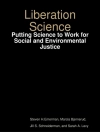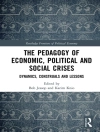Guava (Psidium guajava L.) is an exquisite, nutritionally and economically valuable crop of tropical and subtropical regions of the world. It outshines other tropical fruits in productivity, hardiness, adaptability, nutritional value, and ensures higher economic returns to growers. Guava is commercially grown in over 70 countries, and is gaining in popularity as a ‘super fruit’ due to its nutritional and health benefits.
Notable recent developments include the potential to improve crop yields and quality. New research has also contributed to better understanding of the crop environment, plant growth and physiology of tree and fruit development, with implications for both breeding and cultivation. Guava is one of the few tree fruits where round-the-year harvest is possible by crop regulation. Interspecific hybridization with wild Psidium species has yielded hybrids which are resistant to wilt (a major guava disease in many countries) and are graft compatible. This book:
· is the only publication available in English covering sustainable guava cultivation;
· presents the current state of knowledge on the origin, history, physiology, culture and trade of guava throughout the world; and
· addresses the major production and post-harvest problems.
With contributions from international experts, this is a valuable resource for researchers and students in horticulture, and guava-industry support personnel.
Giới thiệu về tác giả
Dr Daniel Carrillo conducts fundamental and applied research on biological and environmental processes that affect the population dynamics and spread of plant-associated pest and beneficial arthropods in tropical/subtropical fruit crop systems. He specializes in two main areas: biological control, and the ecology and management of invasive insects and mites.
Dr. Carrillo investigates factors that disrupt the beneficial activities of natural enemies and pollinators, and that hinder the development of solutions to mitigate these problems. Additionally, he studies the compatibility between biological and chemical control measures by determining the relative toxicity of pesticides to natural enemies and pollinators, and the compatibility and/or antagonism between biological control agents. Likewise, Dr. Carrillo’s research focuses on multi-trophic interactions between host plants, pest arthropods and natural enemies, and how these affect the outcome of a biological control program. Lastly, he has a special interest in the ecology and management of invasive arthropods with a priority focus on vectors of plant pathogens.












